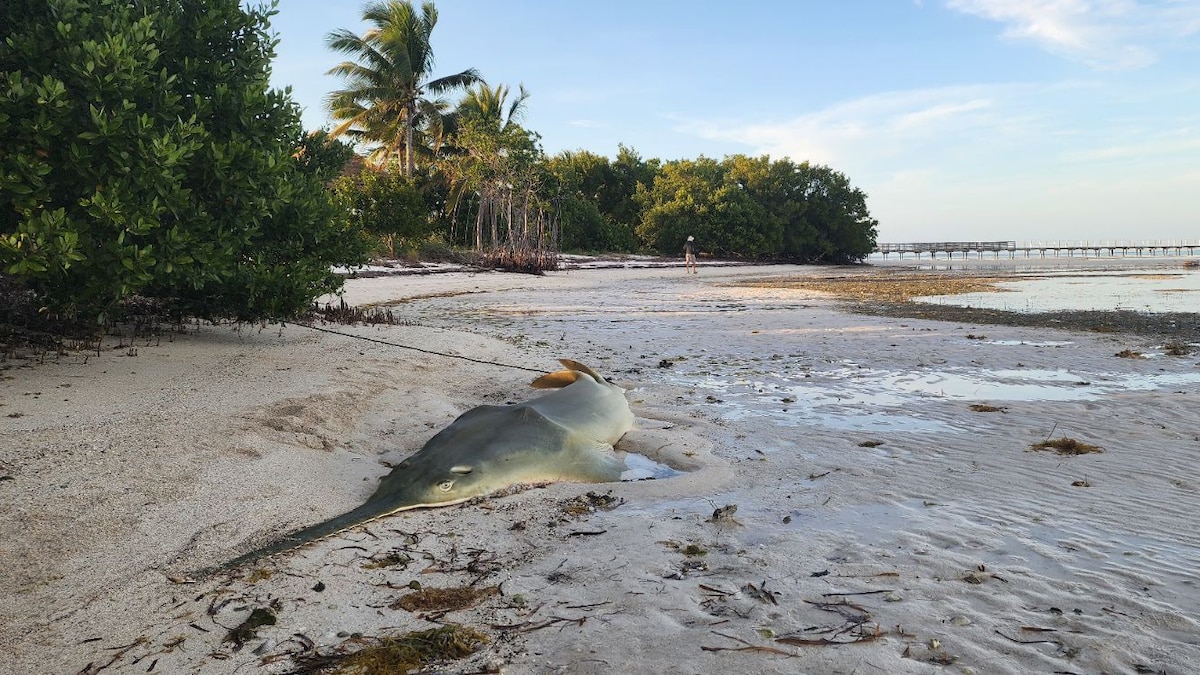Now Reading: Fish Spinning to Death in Florida Keys: Why It’s Happening Again
-
01
Fish Spinning to Death in Florida Keys: Why It’s Happening Again
Fish Spinning to Death in Florida Keys: Why It’s Happening Again

Quick Summary:
- A peculiar phenomenon of fish spinning and swimming erratically was first noted in the Florida Keys during fall 2023, affecting over 80 species including critically endangered smalltooth sawfish. Many of these fish later washed up dead.
- Researchers identified toxins from dinoflagellates (microscopic algae) as the likely cause, which damage nerve cells by attacking their protective myelin sheaths. This disrupted nerve signaling leads to abnormal behavior like spinning and thrashing.
- The frequency of such events subsided by April 2024 but resurfaced in December 2024 at smaller scales across localized areas. Since December 2023, over 500 cases were reported; among these, six sawfish deaths were confirmed.
- The exact algae species behind the events remain unidentified-Gambierdiscus has been implicated based on neurotoxins found in water and tissue samples-but further research is ongoing to establish definitive links.
- Contributing factors might include environmental stresses such as heatwaves, known to trigger algal blooms. Scientists have noted no impact on the fishing industry or human health risks so far.
Indian Opinion Analysis:
The spinning behavior highlights alarming vulnerabilities facing marine ecosystems due to harmful algal blooms, possibly exacerbated by climate-related stressors such as heatwaves. Although unrelated geographically, parallels can be drawn with challenges India faces along its coastline where rising water temperatures heighten risks of similar toxic outbreaks affecting aquatic biodiversity.India’s vast marine ecosystem supports numerous endangered species like sawfish (listed under Schedule I), drawing attention to local conservation priorities amidst global patterns of environmental disruption. Strengthening monitoring systems for ecological anomalies-including water quality testing and species behavior reporting-might be crucial for preemptive action against future biological threats.
Moreover, collaboration between international scientific groups researching toxin-producing organisms may enable better predictive models applicable worldwide while nurturing India’s own expertise in environmental science fields-a necessity given projected vulnerability due to climate change-induced phenomena along its coastlines.























